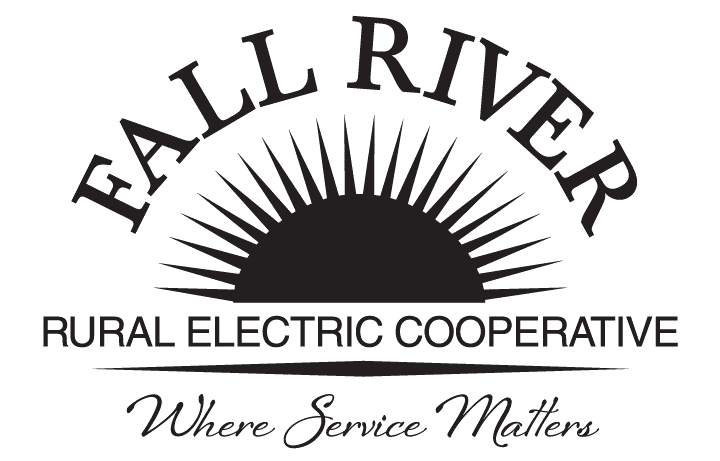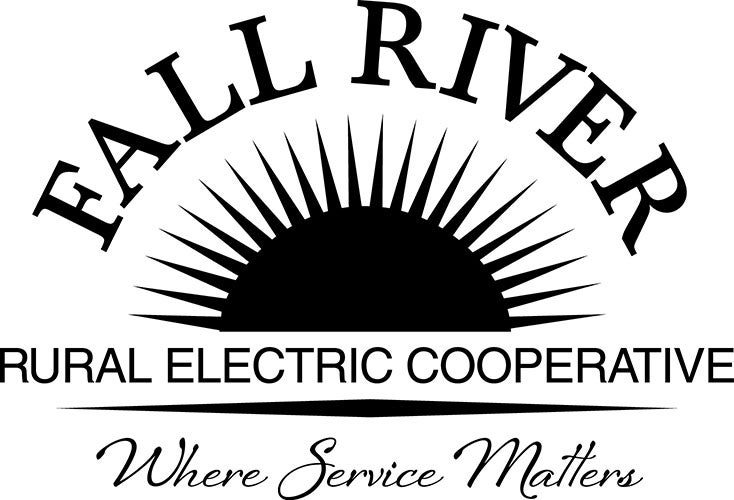
Fall River Rural Electric is committed to protecting the natural beauties that we enjoy here in Idaho, Montana, and Wyoming. Preserving this beauty for future generations. Over the past several years we have made significant progress in our efforts to improve our operational efficiencies and reduce our impact on the surrounding areas. The following is a summary of some of the changes that we implemented in an effort to reduce Fall River’s environmental impact and work towards balanced sustainability.
Recycle
- Provide plastic and aluminum recycling receptacles at all office locations for employees
- All wastepaper is collected, shredded, and recycled at a cost of $4,620 per year.
- Provide recycling receptacles for used CFL and florescent light bulbs at each office location for Fall River’s needs and makes that service available to all Fall River members at no cost
- Recycle used or obsolete computer equipment – including monitors, towers, and print and toner cartridges
- Fall River is a participant in the RAD recycling program in Teton Valley
- Water bottle filling station are available on the water fountains at each office
Reduce
- Fall River’s energy purchases are made up of 93% carbon free generation with 83% of the power purchased coming from clean-carbon free renewable hydro generation.
- The Cooperative owns and operates three “Low Impact” hydroelectric projects – Island Park, Buffalo, and Chester. In addition, the Cooperative owns and operates two other small hydroelectric facility in Felt.
- Invested $458,772 for fish screens on the Cross Cut and Last Chance irrigation canals at the Chester hydro facility to return fish to the Henrys Fork.
- Changed construction practices to help minimize animal fatalities from contact with electrical facilities.
- Changed our construction practices to spread out lines to avoid avian fatalities
- Covered up lines with animal guard to reduce animal and avian contact
- Install bird diverters to reduce swan and other waterfowl electrical line contact.
- Buried lines for swan collision remediation with donations and in partnership with member donations.
- Replaced transformers and oil in station transformers containing PCB to ensure oil meets standards set out for PCB contaminants
- Have replaced oil in transformers near bodies of water to (FR3 a natural ester-based biodegradable vegetable oil) to reduce the risk of petroleum-based oil contaminations in waterways in most areas.
- Repurpose/recycle transformers, meters, reclosers, regulators and other usable equipment
- 95% + of all electrical poles retired from Fall River facilities are reused or repurposed as fence posts, pole barn structures, and other uses.
- All retired overhead wire and guy wire are recycled
- Material from retired electric facilities is cleaned, maintained, and reused if possible
- Unusable metal/steel components are recycled
- Maintain a modern efficient vehicle fleet
Reuse
- Encourage electronic communications as much as possible with members and board directors
- Board packets are sent electronically and accessed using computers or iPads, a move away from hard copy board packets of around 250 pages per month per board member and staff, a savings of over 500,000 sheets of paper annually.
- Members can opt into electronic bills/statements. Currently 6,367 members receive their bills electronically, over 75,000 annually.
- Fall River also encourages members to pay bills electronically and currently the number of paperless payments (Credit Card, E-check, Check Free, and RPPS) is 14,628 payments per month or approximately 175,000 electronic payments are made to Fall River annually.
- Vendors are encouraged to submit bills and receive payments electronically.
- Employees can choose receiving paychecks electronically or by paper check and as of today all employees are being paid electronically
- All Fall River staff also receive their payment stubs electronically as well.
- Fall River is in the process of converting paper files to digital to reduce storage requirements
- The Cooperative is also working to create an all-electronic transition for the ordering, purchasing, receiving and payment of stock inventory items with our largest material supplier
- Provide members with access to account information and payment portals through Fall River’s website and smart phone applications for both Electric and Propane operations
- Transitioned from desktop computers to a server with virtual access points reducing the number of desktop computers and mainframe servers
- Fall River offices are stocked with plates, utensils, cups, and glasses which are washed and reused.
Conservation
- Fall River started its energy conservation efforts in 1984 and has consecutively operated a conservation program every year since, encouraging members to use less energy and conserve kilowatt hours
- Since 2008 Fall River has paid out $3.7+ M for conservation measures resulting in reduction of 17,489,385 kWh. In 2023 alone Fall River paid out $508,477.26 saving 1,642,732 kWh.
- Conservation programs offer incentives for members who choose Energy Star appliances, LED lighting, proper insulation, energy efficient windows, insulate water heaters, perform weatherization measures, improve irrigation energy use, and other custom projects which result in documented energy savings
- Incentives are offered for all types of services including: Residential, Small or Larger Commercial, and Industrial and Agricultural
- Since 2008 Fall River conservation efforts have resulted in almost 17.5 million kWh savings
- Fall River Electric also offers various low-income energy efficiency programs
Fall River Annual Meeting Sustainability
- The Cooperative uses the high schools’ plates and utensils in providing breakfast and they are washed once used to reuse during the event
- Bulk orange juice and water are provided using large coolers to provide members alternatives to single serve drinks
- Paper products were used for cups
- Members were encouraged to use their own water bottles for drinking
- Rather than the packets of silverware, napkin, and salt & pepper wrapped in plastic, we will just have individual options so people can just take what they need.

